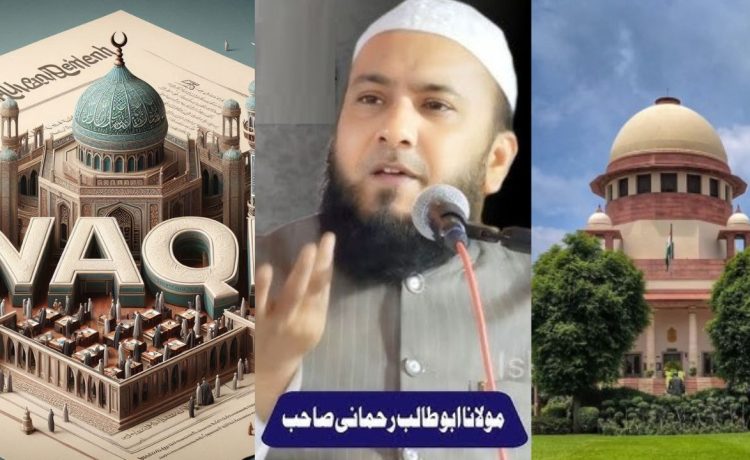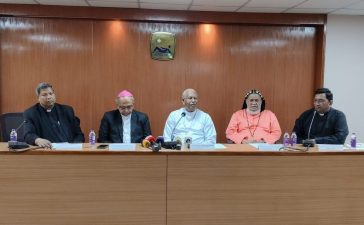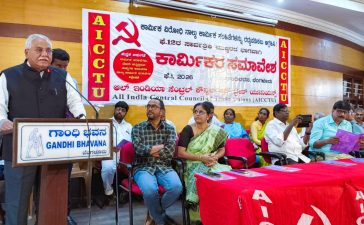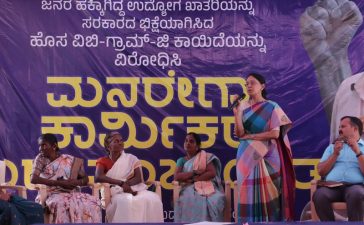Maulana Abu Talib Rehmani Welcomes Supreme Court’s Observations on Waqf Amendment Act, Calls It a Blow to Centre’s Unconstitutional Move
April 18, 2025 | New Delhi
New Delhi: In a strong-worded statement issued following the Supreme Court’s interim observations on the controversial Waqf (Amendment) Act, 2025, Prominent Cleric Maulana Abu Talib Rehmani, a senior member of the All India Muslim Personal Law Board (AIMPLB), welcomed the apex court’s stance and termed Truth will Triumph.”
The Supreme Court had on Thursday declined to stay the implementation of the amended Waqf Act but took on record the Centre’s assurance that no new appointments would be made to Waqf Boards or Councils and that the character of existing waqf properties—particularly those declared by usage—would not be altered until the next hearing on May 5.
‘Judiciary’s Intervention Is a Ray of Hope’
Maulana Rehmani lauded the court’s order maintaining the status quo and expressed full faith in the judiciary to protect the constitutional and religious rights of minorities.
“The Hon’ble Supreme Court’s timely intervention is a ray of hope for justice and a practical demonstration of its commitment to preserving religious and constitutional sensitivities,” he said.
He particularly emphasized the court’s acceptance of the Centre’s assurance as a temporary safeguard for Muslim endowments.
Criticism of Central Government: ‘Unconstitutional and Anti-Minority’
Reiterating the community’s opposition to the amendments, Maulana Rehmani called the Waqf (Amendment) Act a deliberate assault on the autonomy of Islamic institutions.
“This unjust amendment was rushed without consultation, debate, or regard for its long-term consequences. It’s an attempt to dismantle the institutional structure of waqf, and a clear violation of religious freedom,” he asserted.
Referring to the amendments that redefine waqf and allow non-Muslims in Waqf Boards, he said:
“This is not merely legal overreach—it’s a violation of Articles 25 and 26 of the Constitution and a betrayal of India’s secular values.”
‘Criticism of Modi Government’s Agenda’
Referring to the political backdrop of the law, Maulana Rehmani did not mince words in his criticism of the government.
“The Supreme Court’s move shows a mirror to the Modi-led NDA government, which has repeatedly used legislation to target minorities and weaken their institutions.”
He urged civil society and democratic forces to remain vigilant against what he termed “a creeping erosion of constitutional rights.”
Thanks to All Who Stand for Justice
Maulana Rehmani also extended gratitude to individuals and organizations who have supported the legal challenge and broader resistance to the law.
“I thank every person, lawyer, scholar, activist, and media voice who has raised concerns and taken a stand—whether from the courtroom, the newsroom, the street, or the pulpit.”
What’s Next?
With the next hearing scheduled for May 5, the matter is far from settled. The apex court’s direction that no appointments or changes be made under the amended law until then has momentarily calmed anxieties within the community. However, legal and political observers agree that the outcome of this case will likely have lasting implications for the governance of religious endowments in India.
For now, the battle over the Waqf Amendment Act remains a high-stakes test of constitutional protections, religious freedom, and the limits of state intervention in community affairs.
📢 Key Statements by Maulana Abu Talib Rehmani
-
On Supreme Court’s Interim Order:
“The Hon’ble Supreme Court’s observation is a ray of hope for justice. It reflects sensitivity to the constitutional and religious rights of the Muslim community.”
-
On the Waqf Amendment Act:
“The Waqf (Amendment) Act, 2025 is unconstitutional, anti-minority, and passed without meaningful consultation. It is an attempt to dismantle waqf institutions under the guise of reform.”
-
On the Political Intent:
“This legislation is not about transparency—it is about control. It’s a deliberate move by the Modi-led NDA government to weaken minority autonomy.”
-
On Future Outlook:
“We trust the judiciary will safeguard constitutional values and ensure that justice is neither delayed nor denied.”
-
On Public Support:
“We thank every citizen, organization, and voice of conscience standing up for justice, inside and outside the courtroom.”
🗣️ Direct Quotes
“This is not merely a legal matter. It is a test of India’s constitutional soul.”
“The government cannot bulldoze its agenda over centuries-old religious practices and endowments protected by law.”
❓Q&A
Q: How do you view the Supreme Court’s latest observations on the Waqf Amendment Act?
A: I welcome the court’s decision to maintain the status quo. It shows judicial wisdom and a willingness to listen to community concerns.
Q: What is your primary objection to the amended Waqf Act?
A: It violates the Constitution, particularly Articles 25 and 26. It allows interference in religious endowments and threatens their autonomous governance.
Q: Is this a communal issue?
A: This is not about any one community. It’s about preserving the secular and democratic framework of the country.
Q: What do you expect moving forward?
A: We hope for a fair, just, and constitutionally sound judgment. The nation is watching, and the stakes are high.
🧵 #WaqfAmendmentAct #SupremeCourt #MinorityRights #JusticeForWaqf #SecularIndia #WaqfJustice #StopUnconstitutionalLaws #AIMPLB
![]()











